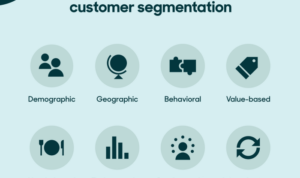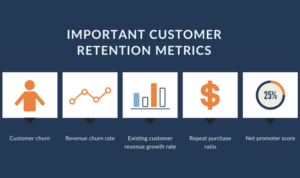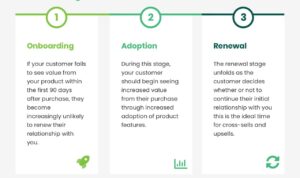Building a Marketing Budget sets the stage for businesses to strategically plan their financial roadmap, making informed decisions to enhance their marketing efforts and drive growth. Dive into the world of budgeting with us as we unravel the key components for success.
Understanding the Importance of a Marketing Budget
Having a marketing budget is crucial for businesses as it provides a clear roadmap for allocating resources towards marketing efforts. It helps in determining how much to spend on advertising, promotions, and other marketing activities to achieve business goals effectively.
Benefits of Setting a Clear Marketing Budget
- Allows for better decision-making: With a set budget in place, businesses can make informed choices on where to allocate funds for maximum impact.
- Improves accountability: A defined budget holds teams accountable for their spending and results, ensuring efficiency and effectiveness in marketing campaigns.
- Enables tracking of ROI: By knowing exactly how much is being invested in marketing, businesses can measure the return on investment and adjust strategies accordingly.
Impact of a Well-Defined Budget on Marketing Strategy
- Optimizes resource allocation: A clear budget helps in prioritizing marketing initiatives based on their potential impact, ensuring resources are utilized efficiently.
- Enhances goal setting: Setting a budget forces businesses to establish concrete marketing objectives and KPIs, guiding the overall strategy towards success.
- Fosters creativity and innovation: Knowing the financial limitations can inspire creative solutions and innovative approaches to marketing challenges within the set budget constraints.
Factors to Consider When Building a Marketing Budget

When creating a marketing budget, there are several key factors that need to be taken into consideration to ensure the effective allocation of funds and resources. Market research, short-term and long-term goals play a crucial role in determining the overall budget.
Market Research Influence
Market research is essential in understanding the target audience, competition, and industry trends. By conducting thorough market research, companies can make informed decisions on where to allocate their marketing budget for maximum impact. This data-driven approach helps in identifying the most effective channels and strategies to reach potential customers.
Short-term and Long-term Goals
It is important to consider both short-term and long-term goals when creating a marketing budget. Short-term goals may include increasing brand awareness, launching a new product, or driving sales for a specific period. On the other hand, long-term goals focus on building lasting relationships with customers, increasing market share, and establishing a strong brand presence over time. By aligning the budget with these goals, companies can ensure that their marketing efforts are strategic and impactful in the long run.
Types of Expenses to Include in a Marketing Budget: Building A Marketing Budget

When building a marketing budget, it is crucial to consider various categories of expenses to ensure a comprehensive plan. Understanding the difference between fixed and variable expenses is essential to effectively allocate funds. Additionally, comparing digital marketing expenses to traditional marketing costs can help determine the most efficient strategy for reaching target audiences.
Categories of Expenses to Include, Building a Marketing Budget
- Advertising Costs
- Public Relations Expenses
- Market Research and Analysis
- Marketing Collateral Production
- Event Sponsorship and Participation
Fixed vs. Variable Expenses
Fixed expenses in marketing refer to costs that remain constant regardless of the level of sales or marketing activities. These can include salaries, rent, and certain subscriptions. On the other hand, variable expenses fluctuate based on the volume of marketing efforts, such as advertising spend, commissions, and promotional materials.
Digital vs. Traditional Marketing Expenses
Allocating funds for digital marketing involves expenses related to online platforms, social media advertising, email campaigns, and website maintenance. Traditional marketing expenses, on the other hand, include costs associated with print advertising, television commercials, radio spots, and direct mail campaigns. Digital marketing often offers more targeted and measurable results compared to traditional methods, making it a cost-effective option for many businesses.
Strategies for Allocating Budget Across Marketing Channels
Determining how to allocate your marketing budget across different channels is a crucial decision that can greatly impact the success of your campaigns. By strategically distributing your budget, you can maximize your reach and engagement with your target audience. Testing and optimizing your budget allocation is key to finding the most effective mix of channels for your business.
Importance of Testing and Optimizing Budget Distribution
Testing and optimizing your budget distribution allows you to identify the channels that are driving the best results for your business. By experimenting with different allocations and analyzing the performance of each channel, you can refine your strategy to focus on the most profitable avenues. This iterative process helps you make data-driven decisions and ensures that your marketing budget is being used efficiently.
- Utilize A/B testing to compare the performance of different marketing channels.
- Monitor key performance indicators (KPIs) for each channel to track their effectiveness.
- Allocate more budget to high-performing channels and adjust or eliminate underperforming ones.
Successful Budget Allocation Strategies for Different Businesses
Successful budget allocation strategies can vary depending on the type of business and its marketing goals. Here are some examples of effective allocation strategies for different types of businesses:
| Business Type | Allocation Strategy |
|---|---|
| E-commerce | Focus on digital channels like social media advertising and search engine marketing to drive online sales. |
| Local Service Business | Invest in local , Google My Business, and targeted local advertising to reach customers in your area. |
| B2B Company | Allocate budget towards content marketing, email campaigns, and LinkedIn advertising to reach business decision-makers. |





